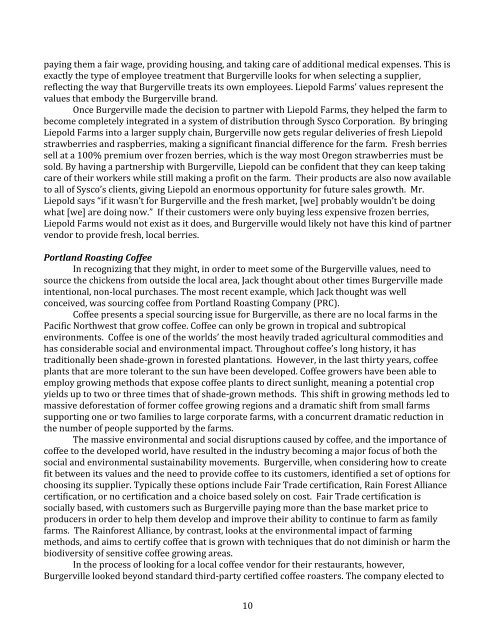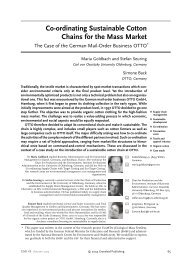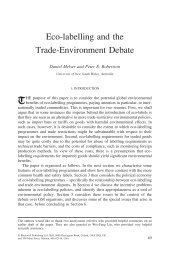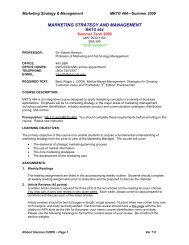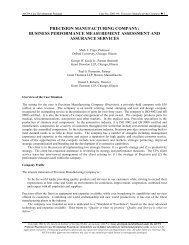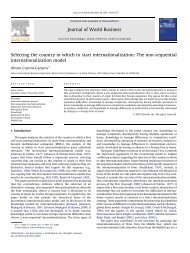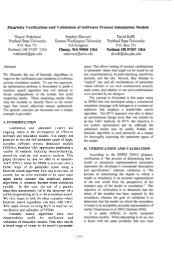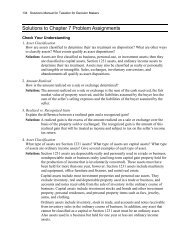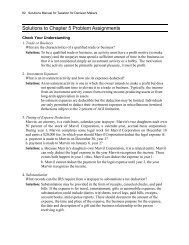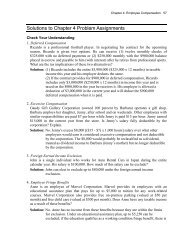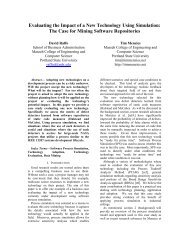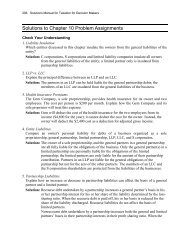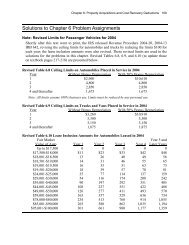Burgerville Supply Chain Case - School of Business Administration ...
Burgerville Supply Chain Case - School of Business Administration ...
Burgerville Supply Chain Case - School of Business Administration ...
Create successful ePaper yourself
Turn your PDF publications into a flip-book with our unique Google optimized e-Paper software.
paying them a fair wage, providing housing, and taking care <strong>of</strong> additional medical expenses. This is<br />
exactly the type <strong>of</strong> employee treatment that <strong>Burgerville</strong> looks for when selecting a supplier,<br />
reflecting the way that <strong>Burgerville</strong> treats its own employees. Liepold Farms’ values represent the<br />
values that embody the <strong>Burgerville</strong> brand.<br />
Once <strong>Burgerville</strong> made the decision to partner with Liepold Farms, they helped the farm to<br />
become completely integrated in a system <strong>of</strong> distribution through Sysco Corporation. By bringing<br />
Liepold Farms into a larger supply chain, <strong>Burgerville</strong> now gets regular deliveries <strong>of</strong> fresh Liepold<br />
strawberries and raspberries, making a significant financial difference for the farm. Fresh berries<br />
sell at a 100% premium over frozen berries, which is the way most Oregon strawberries must be<br />
sold. By having a partnership with <strong>Burgerville</strong>, Liepold can be confident that they can keep taking<br />
care <strong>of</strong> their workers while still making a pr<strong>of</strong>it on the farm. Their products are also now available<br />
to all <strong>of</strong> Sysco’s clients, giving Liepold an enormous opportunity for future sales growth. Mr.<br />
Liepold says “if it wasn’t for <strong>Burgerville</strong> and the fresh market, [we] probably wouldn’t be doing<br />
what [we] are doing now.” If their customers were only buying less expensive frozen berries,<br />
Liepold Farms would not exist as it does, and <strong>Burgerville</strong> would likely not have this kind <strong>of</strong> partner<br />
vendor to provide fresh, local berries.<br />
Portland Roasting C<strong>of</strong>fee<br />
In recognizing that they might, in order to meet some <strong>of</strong> the <strong>Burgerville</strong> values, need to<br />
source the chickens from outside the local area, Jack thought about other times <strong>Burgerville</strong> made<br />
intentional, non-local purchases. The most recent example, which Jack thought was well<br />
conceived, was sourcing c<strong>of</strong>fee from Portland Roasting Company (PRC).<br />
C<strong>of</strong>fee presents a special sourcing issue for <strong>Burgerville</strong>, as there are no local farms in the<br />
Pacific Northwest that grow c<strong>of</strong>fee. C<strong>of</strong>fee can only be grown in tropical and subtropical<br />
environments. C<strong>of</strong>fee is one <strong>of</strong> the worlds’ the most heavily traded agricultural commodities and<br />
has considerable social and environmental impact. Throughout c<strong>of</strong>fee’s long history, it has<br />
traditionally been shade-grown in forested plantations. However, in the last thirty years, c<strong>of</strong>fee<br />
plants that are more tolerant to the sun have been developed. C<strong>of</strong>fee growers have been able to<br />
employ growing methods that expose c<strong>of</strong>fee plants to direct sunlight, meaning a potential crop<br />
yields up to two or three times that <strong>of</strong> shade-grown methods. This shift in growing methods led to<br />
massive deforestation <strong>of</strong> former c<strong>of</strong>fee growing regions and a dramatic shift from small farms<br />
supporting one or two families to large corporate farms, with a concurrent dramatic reduction in<br />
the number <strong>of</strong> people supported by the farms.<br />
The massive environmental and social disruptions caused by c<strong>of</strong>fee, and the importance <strong>of</strong><br />
c<strong>of</strong>fee to the developed world, have resulted in the industry becoming a major focus <strong>of</strong> both the<br />
social and environmental sustainability movements. <strong>Burgerville</strong>, when considering how to create<br />
fit between its values and the need to provide c<strong>of</strong>fee to its customers, identified a set <strong>of</strong> options for<br />
choosing its supplier. Typically these options include Fair Trade certification, Rain Forest Alliance<br />
certification, or no certification and a choice based solely on cost. Fair Trade certification is<br />
socially based, with customers such as <strong>Burgerville</strong> paying more than the base market price to<br />
producers in order to help them develop and improve their ability to continue to farm as family<br />
farms. The Rainforest Alliance, by contrast, looks at the environmental impact <strong>of</strong> farming<br />
methods, and aims to certify c<strong>of</strong>fee that is grown with techniques that do not diminish or harm the<br />
biodiversity <strong>of</strong> sensitive c<strong>of</strong>fee growing areas.<br />
In the process <strong>of</strong> looking for a local c<strong>of</strong>fee vendor for their restaurants, however,<br />
<strong>Burgerville</strong> looked beyond standard third-party certified c<strong>of</strong>fee roasters. The company elected to<br />
10


